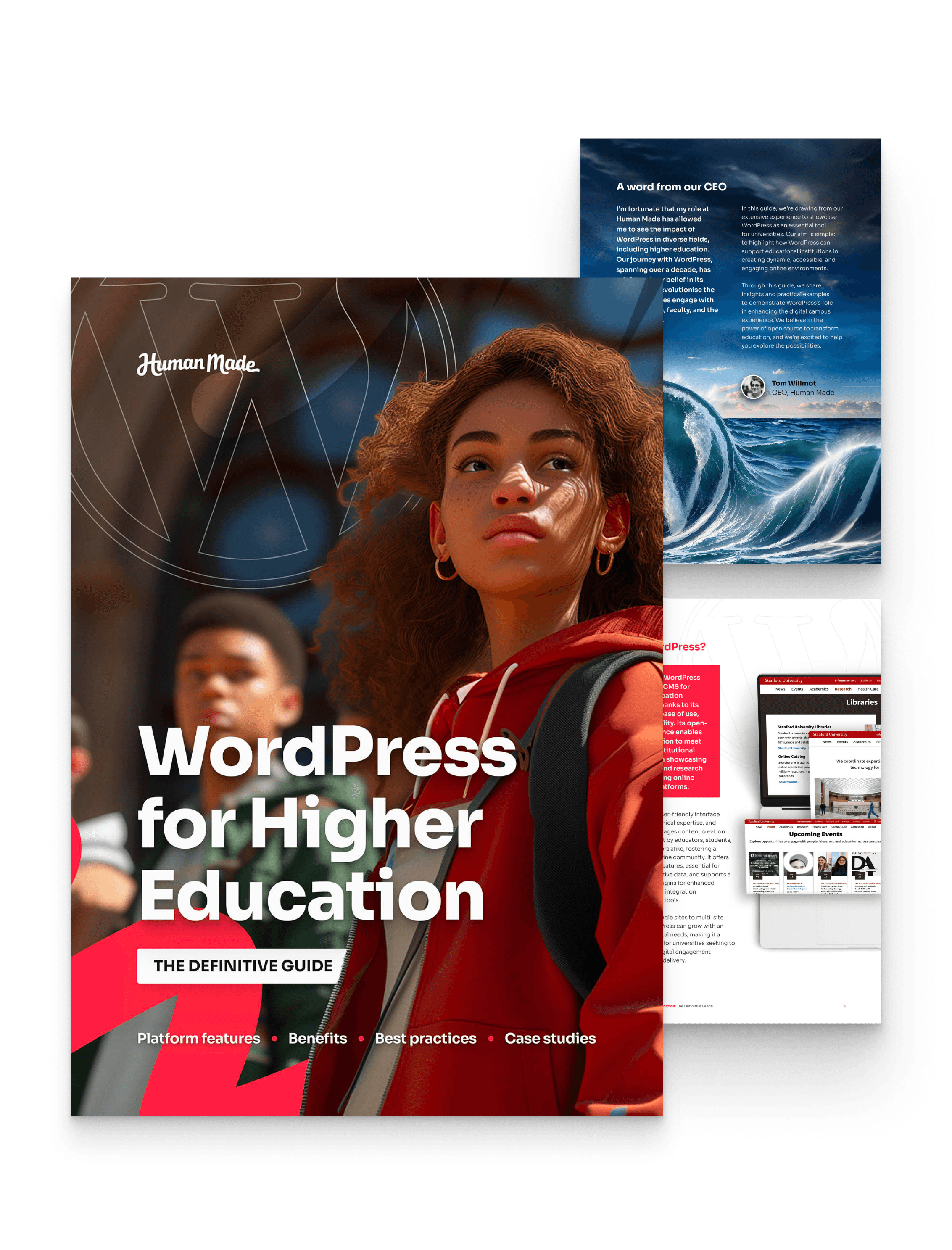In the higher education sector, launching or revamping a website requires a partnership that goes beyond the ordinary. Institutions look for an agency capable of understanding the unique challenges and aspirations of academic environments – putting together a Request for Proposal (RFP) tailored for higher education can significantly streamline the selection process, ensuring that the chosen agency aligns with the institution’s values, goals, and specific needs.
Drawing from Human Made’s extensive experience in handling RFPs, here are our recommendations to help you land the right agency for your build.
1. Introduction to your institution
Begin your RFP with a comprehensive introduction to your institution. Highlight your history, mission, academic excellence, and the community you serve. This section sets the stage, providing agencies with a glimpse into your institution’s identity and core values.
2. Be direct with project objectives and scope
Clearly articulate the project’s objectives, for example: emphasising the need to enhance the educational experience, improve accessibility, and foster engagement within the academic community. Detail the scope of work, including specific functionalities and features that cater to the needs of students, faculty, and stakeholders.

3. Define your success metrics
For higher education institutions, defining success metrics is crucial in evaluating the impact of a new or revamped website. These metrics should directly reflect the institution’s educational goals, such as enhancing enrollment rates, fostering greater student engagement, or improving access to academic resources. Tailoring these metrics to the specific objectives of the project ensures that your chosen agency develops your site in alignment with the institution’s broader mission and contributes meaningfully to its educational outcomes.
4. Accessibility standards must be up to scratch
Adherence to web accessibility standards is non-negotiable for higher education websites. This commitment ensures that all users, regardless of their abilities, can fully engage with the site’s content and functionalities. Incorporating accessibility standards from the outset of the project not only complies with legal requirements but also demonstrates the institution’s dedication to inclusivity, making education accessible to a wider audience.

5. Clear budget and timeline
Outline your budget with a recognition of funding structures and cycles common in higher education. Specify your project timeline, taking into account academic calendars and key milestones, to ensure timely and efficient project completion.
6. Facilitate understanding of your institution
Invite agencies to inquire about your institution’s culture, technological infrastructure, and any specific challenges or opportunities. This dialogue can reveal an agency’s willingness and ability to tailor their approach to meet your unique needs.

7. Include selection criteria
Establish clear selection criteria that prioritise experience with higher education projects, understanding of accessibility standards, and a proven track record of delivering engaging and effective websites.
8. The RFP process
Detail the RFP process, from submission deadlines to the selection timeline, ensuring transparency and clarity. This helps set expectations and facilitates a smooth, structured engagement from the outset.
Adding to the depth of your RFP, it’s beneficial to discuss the importance of future-proofing the website. Highlight how the site should accommodate future content growth and technological advancements, ensuring it remains a central resource for the institution.
Also, emphasise the value of incorporating feedback from the academic community throughout the development process. This approach not only ensures that the final product meets the diverse needs of your institution but also fosters a sense of ownership and engagement among all stakeholders.
By extending the conversation to include these forward-looking and community-focused elements, your education institution’s website RFP will attract agencies that are not just capable of addressing current needs but are also committed to your institution’s long-term success and relevance in the dynamic landscape of higher education.
Got a project you’d like to discuss? Get in touch for a chat with our experts.

